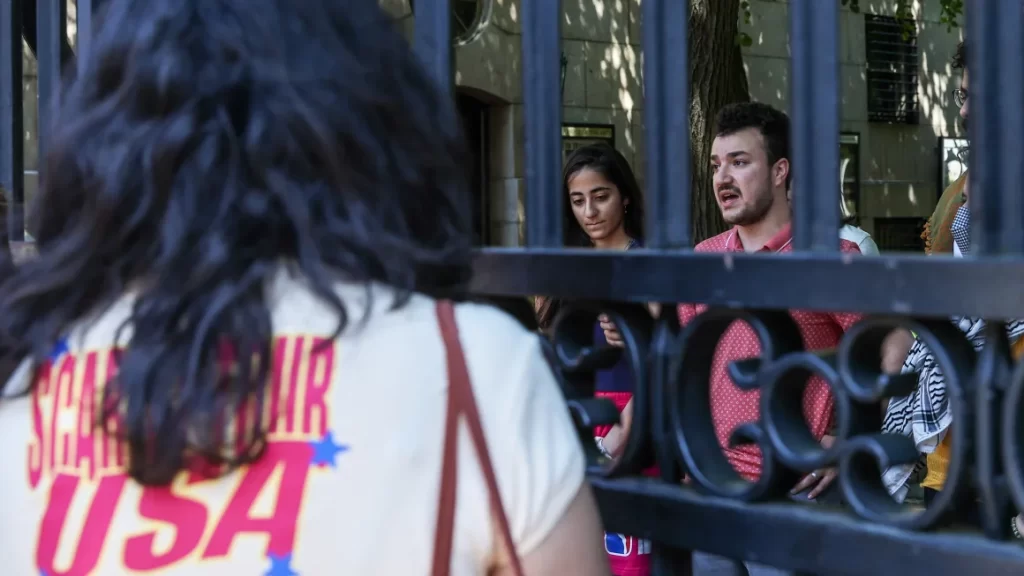A Louisiana immigration judge announced on Tuesday that she will decide by the end of this week whether to keep Columbia University graduate Mahmoud Khalil in detention or release him.
Khalil, a well-known advocate for Palestine, was taken into federal custody last month outside his Columbia University residence and subsequently transferred to a detention facility in Jena, Louisiana.
Judge Jamee Comans has set a deadline of Wednesday at 6 p.m. ET for the federal government to submit evidence against Khalil, according to Khalil’s legal representatives who shared details of the hearing with CNN.
The Department of Homeland Security stated that it ordered Khalil’s deportation based on allegations that his presence and activities could have “potentially serious adverse foreign policy consequences for the United States.” Khalil’s attorneys are contesting these accusations in federal court, arguing the legality of his arrest and asserting that he is being targeted due to his pro-Palestine activism.
The judge indicated that if the evidence does not support the government’s order to remove him from the United States, she would proceed to close the case by Friday.
This development was not entirely positive news for Khalil’s legal team.
Marc Van Der Hout, Khalil’s immigration attorney, said in a statement that the government has yet to produce “a single piece of evidence” to support the charges against Khalil. He added that dismissing the case without proper due process would deny Khalil the opportunity to defend himself in court and challenge the government’s accusations.
Related article Trump administration accuses pro-Palestinian activist Mahmoud Khalil of hiding info on his green card application
“The Immigration judge today stated she intends to rule Friday on the merits of this outlandish charge with no realistic opportunity for Mahmoud and his lawyers to contest this baseless charge,” Van Der Hout said. “If this turns out to be what happens Friday, it would be an uncalled for rush to judgement that would completely deprive Mahmoud of any due process, which is a foundation of our legal system.”
Khalil’s immigration proceedings are separate from the case in federal court. His immigration lawyers have not yet had the chance to challenge his deportation order.
Khalil appeared in person during the hearing, according to the Associated Press. He was wearing a navy blue T-shirt over a beige sweatshirt and spoke briefly to ask the judge to allow his wife to join the remote hearing. The judge granted this request after initially revoking remote access for the media and the public when over 600 people attempted to access the hearing remotely on Tuesday.
The court was overwhelmed by the access requests, which the judge described as “highly unusual,” leading her to revoke public access and only grant access to attorneys during the hearing.



